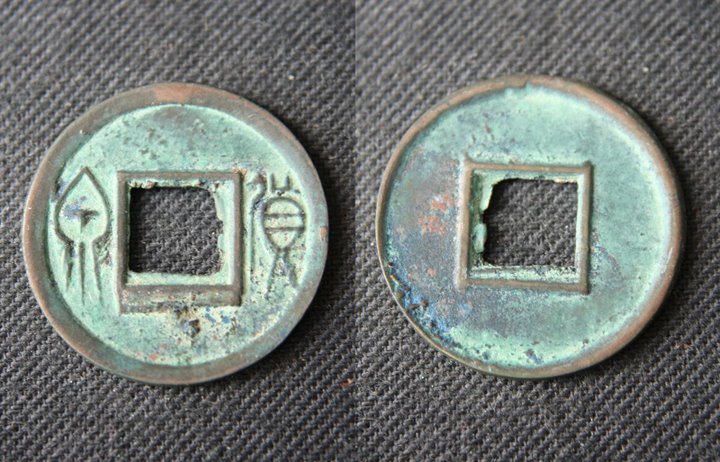Yi Zong(義縱) (? BC - 117 BC)
His surname is (Yi), his parents gave him
the name (Zong), and he was born in Shanxi Province, China.
|
義 |
The meaning of justice. The meaning of
righteousness. It is also one of the Chinese surnames. |
|
縱 |
Indulgence means. Straight meaning. |
He was a famous minister in the Han
Dynasty.
History books record a story about him.
Since the founding of the Han Dynasty, each
province has its own independent coinage rights.
Due to the differences in the specifications
and sizes of coins minted in each province, starting from 140 BC, the king of
the Han Dynasty began a series of currency system reforms.
At that time, there was another serious
problem. There were many criminals in the private sector who minted coins
privately.
The actions of these criminals caused
serious problems in the financial system and taxation of the Han Dynasty.
119 BC. He was transferred back to the
capital, and his duty was to arrest those criminals who minted coins privately.
In 117 BC, the king issued a new tax law.
The content of this tax law is as follows.
If you know someone who is evading taxes,
you should take the initiative to report these people.
If it is verified that the content of your
report is true, then all the property of these tax evaders will be confiscated,
and you can get one-half of the confiscated property.
He does not agree with this order issued by
the king. He believes that this order will seriously damage the foundation of
trust between people, and he believes that this order does not really solve the
problem of tax evasion caused by the confusion of the currency system. So he
resisted the order.
The king was very angry when he heard that
he had publicly resisted this order.
He was arrested by the king, who sentenced
him to death.
In 113 BC, after many failures, the king of
the Han Dynasty made a major change in the sixth reform.
The king issued an order to transfer the
minting power to the central government, and the central government would mint
and issue coins uniformly.
This reform is very important, and this
reform really fundamentally restored the stability of the financial order of
the Han Dynasty.
Dear friend, what kind of inspiration or
thoughts do you have after hearing this story?
How do you rate his rebellion against
carrying out the king's orders? Do you think your country's tax system is fair?
I hope this story can give you something to
gain.
義縱(Yi Zong)(西元前?年-西元前117年)
他的姓是(義),他的父母給他取的名字是(縱),他出生地位於在中國的山西省。
|
義 |
正義的意思。公義的意思。也是中國人的姓氏之一。 |
|
縱 |
放縱的意思。直的意思。 |
他是漢王朝一個著名的大臣。
歷史書上記載了一個關於他的故事。
漢王朝從建國開始,每個省都擁有各省獨立的鑄幣權。
由於每個省所鑄造的錢幣規格與大小有落差,所以從西元前140年開始,漢王朝的國王開始一連串的幣制改革。
當時還有一個嚴重的問題,民間有很多不法份子會私鑄錢幣。
這些不法份子的行為造成漢王朝的金融系統與稅收發生嚴重的問題。
西元前119年。他被調回首都,他的職責是抓捕那些私鑄錢幣的不法份子。
西元前117年,國王頒布一條新的稅務法令。
這條稅務法令的內容如下。
如果你認識的人有逃漏稅,你就應該主動檢舉這些人。
如果經由查證,你所舉報的內容屬實,那麼這些逃漏稅的人將被沒收全部的財產,而你可以獲得這筆被沒收財產的二分之一。
他不認同國王頒布的這條命令,他認為這條命令將嚴重的破壞人與人之間的信任基礎,而且他認為這項命令並沒有辦法真正解決因為幣制混亂而造成的逃漏稅的問題,所以他抗拒這項命令。
國王聽到他公開抗拒這項命令後,國王非常生氣。
他被國王逮捕,國王處他死刑。
西元前113年,漢王朝的國王在經過多次的失敗後,國王在第六次的改革中,做了一個重大的改變。
國王發布命令將鑄幣權收歸中央政府,統一由中央政府鑄造與發行錢幣。
這項改革非常的重要,這項改革才真正從根本上讓漢王朝的金融秩序恢復穩定。
親愛的朋友,你聽完這個故事有怎樣的啟發或是想法呢。
你如何評價他反抗執行國王的命令的這項行為呢?你認為你的國家的稅務辦法公平嗎?
我希望這故事能讓你產生一點收穫。
出處為史記-酷吏列傳
